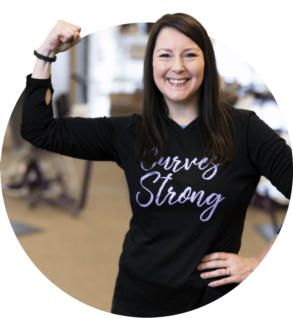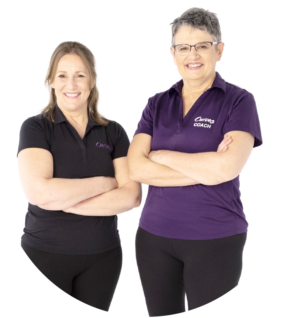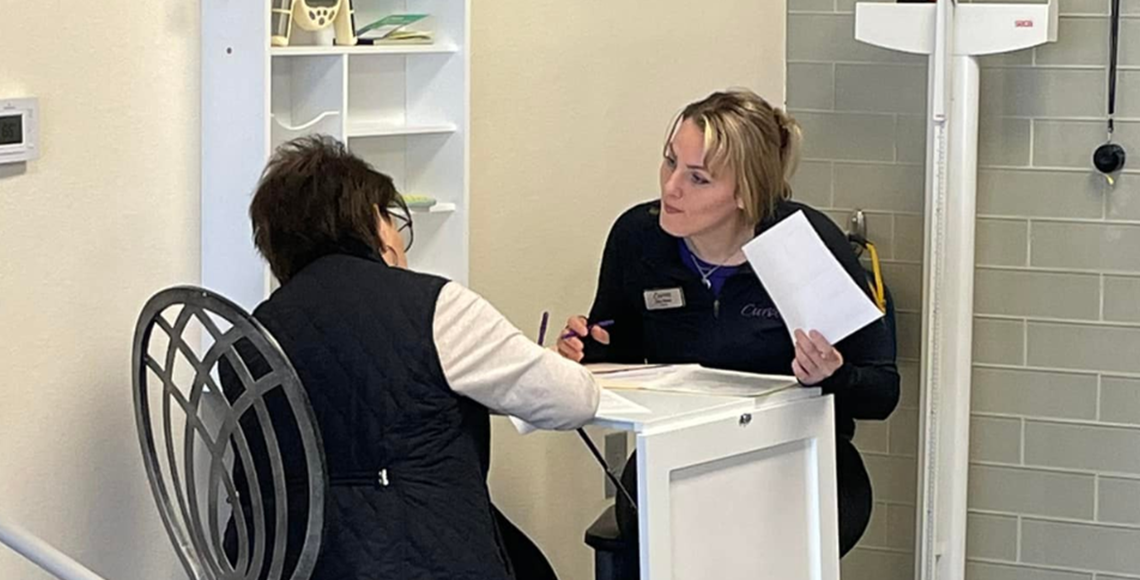When You’re the Caregiver Some Important Reminders
As women, we are often the caregivers. We play a crucial role in maintaining our family’s health – sometimes at the sacrifice of our own health and wellbeing. But we can’t take care of others if we aren’t in good shape ourselves. So, in the spirit of Women’s Health Week, here’s a reminder that caring for yourself is just as important as caring for your friends and loved ones. After all, as women, we are more likely than men to be affected by several conditions, including heart disease, osteoporosis, arthritis, bladder and urinary tract conditions, anxiety and depression, and certain cancers. So, check in with yourself—are you taking care of your physical, mental, and emotional wellbeing?
What you can do this Women’s Health Week:
Curves is joining the celebration of the week that is all about women taking positive and practical steps to being healthy in mind and body. Here are some things you can do to support your own physical and emotional health:
See your primary health care provider for a general check. Experts recommend you see your primary care doctor once a year after the age of 40. If you are younger than 40 and in good health, once every two years should be enough. Talk to your primary care doctor about the best schedule for you.1
Get a breast cancer screening. The American Cancer Society recommends women ages 40-44 should have their choice to start annual breast cancer screenings with mammograms, if they wish to do so. Starting at age 45, women should receive yearly mammograms.2
See your OB/GYN for a cervical cancer screening. The American Cancer Society recommends you see your OB/GYN for an HPV test every five years from age 25 to age 65. If your OG/GYN doesn’t offer HPV testing alone, you can get a combination HPV/PAP test or a Pap test every three years.3
Get your blood pressure checked. If you see your primary care provider annually, you can get these screenings at this visit. Women aged 40 and older should get their blood pressure checked once a year. Women aged 18 to 39 who aren’t at risk for high blood pressure can get it checked every three to five years.4
Get your cholesterol checked. Healthy women should have their cholesterol checked every four to six years. If you have high cholesterol or at risk for the condition, talk to your doctor about how often you should be screened.
Have your eyes examined. If you are 40 or older, the American Academy of Ophthalmology recommends you have a complete eye exam. Forty is the age when vision changes and eye diseases tend to begin. Based on the results of that exam, your eye doctor will recommend the frequency with which you should have your eyes checked. If you are 60 or older, you should have your eyes examined every one to two years.5
Go to the dentist. The American Dental Association recommends people see a dentist “regularly.” Most people see their dentist for a checkup and professional cleaning every six to 12 months. Talk to your dentist about whether you should to more frequently.6
Take an honest look at your diet. One of the most important parts of taking good care of yourself is making sure you are eating a healthful, balanced diet and avoiding the foods that can be detrimental to women’s mental health and physical health. This means getting the right amount of nutrients from fruits and vegetables, protein sources, and whole grains. If you’re a member of Curves, the Curves Nutrition and Weight Management Program will give you healthy eating tips to help you lose weight and get healthier overall.
Start or continue a regular full body workout with the Curves Circuit. Next to diet, one of the other most important things you can do for good health is engage in a regular workout routine like the Curves Circuit. At Curves, you’ll get the perfect balance of strength training and aerobic activity to support a healthy body and mind.
Sleep well. Because we are so busy, too often, we skimp on sleep. Plus, the hormonal changes of menopause and anxiety we feel in middle age can keep us tossing and turning at night when we finally lay down. The National Sleep Foundation recommends adults get seven to nine hours of sleep. Good sleep habits can help boost physical and mental health.7
To celebrate Women’s Health Week, the best thing you can do is take good care of yourself. Make it a point to take time for self-care and go through the above checklist to remind yourself to take care of yourself throughout the whole year.
To find out more about how you can informed lifestyle and health choices, visit our blog under the ‘Live’ category! You can also learn more about how the Curves Circuit can benefit your lifestyle here.
Sources:
- How Often Should You See Your Primary Care Provider?
- American Cancer Society Recommendations for the Early Detection of Breast Cancer
- ACS’s Updated Cancer Screening Guidelines Explained
- Get Your Blood Pressure Checked
- Eye Exam
- How Regularly Should You Get Your Teeth Cleaned?
- How Much Sleep Do We Really Need?








